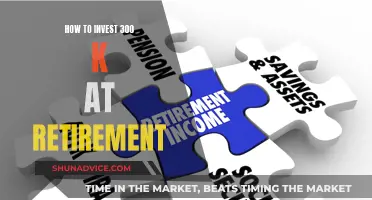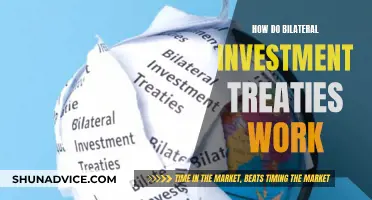
Paying off your mortgage or investing your money elsewhere is a common dilemma for homeowners. The best option depends on your financial situation, risk tolerance, and life stage.
If you're in the early years of your mortgage, it's usually smarter to pay down your mortgage as much as possible to avoid paying more in interest over time. On the other hand, if you're nearing the end of your mortgage term, it may be more beneficial to invest your money elsewhere, as you're likely paying more of the principal and less interest.
Investing in the stock market or similar instruments can provide higher returns than paying off your mortgage early, but it also carries more risk. If you're averse to debt, paying off your mortgage early can give you peace of mind and free up funds for other investments. However, it's important to consider the opportunity cost of not investing your money elsewhere, as well as the potential loss of tax benefits associated with mortgage interest deductions.
Ultimately, the decision to pay off your mortgage or invest depends on your financial goals, risk tolerance, and personal circumstances. Consulting a financial advisor can help you make an informed decision that aligns with your goals and risk appetite.
| Characteristics | Values |
|---|---|
| Interest savings | Paying off a mortgage early can save thousands in interest payments |
| Peace of mind | Being debt-free can ease the burden of constant debt |
| Build equity | Paying down a mortgage faster means building equity in the home |
| Opportunity cost | Extra money spent on paying down a mortgage is money that can't be used for other financial goals |
| Wealth is tied up | Property is an illiquid asset, meaning it can't be converted to cash quickly or easily |
| Loss of tax breaks | Paying down a mortgage instead of maxing out tax-advantaged retirement accounts results in loss of tax deductions |
| Higher returns | Investing instead of paying off a mortgage can result in higher returns due to higher average stock market returns compared to mortgage rates |
| Liquid investment | Investing in stocks, bonds, and other market investments provides easier access to money compared to property |
| Employer match | Investing in a retirement account may come with the benefit of an employer match |
| Higher risk | Investing in the stock market carries more risk and volatility compared to the housing market |
| Increased debt | Choosing to invest instead of paying off a mortgage means continuing to carry debt |
What You'll Learn

Weigh up the interest saved on your mortgage payments against potential investment gains
When deciding whether to invest or pay off a mortgage, it's critical to weigh up the potential interest saved against the prospective investment gains. This decision will depend on various factors, including the borrower's financial situation, the loan's interest rate, and how close the borrower is to retirement.
Mortgage payments comprise interest and principal portions. In the early years, a larger amount of the payment goes towards interest, while in the later years, more is directed towards decreasing the principal. This distribution changes over the loan's lifetime due to the fluctuating loan balance.
For example, let's consider a 30-year mortgage of $200,000 with a fixed rate of 4.5%. The monthly payments would be $1,013, and a total of $164,813 in interest would be paid over the loan's life. If the borrower could add an extra $300 per month, they would save $67,816 in interest and shorten the repayment period by 11 years and one month.
Now, let's compare this to investing that extra $300 per month in an index fund tracking the S&P 500, which has historically returned an average of 10% to 11% annually. Assuming a more conservative average annual return of 8%, the borrower would have $160,780 at the end of 19 years (the time it would take to pay off the mortgage early). This amount is more than double the potential interest savings.
On the one hand, paying off the mortgage early provides guaranteed interest savings and the security of owning a debt-free home. It also reduces the overall interest paid and can increase one's credit score. However, it ties up wealth in an illiquid asset, may result in losing tax deductions on mortgage interest, and could mean missing out on higher returns from other investments.
On the other hand, investing offers the potential for higher returns, liquidity, and, in the case of retirement accounts, employer matching and tax benefits. However, investing is riskier, and there is no guarantee of favourable returns. Additionally, investing does not eliminate the debt, and the borrower will still need to make mortgage payments.
Ultimately, the decision to pay off the mortgage or invest depends on the borrower's financial situation, risk tolerance, and personal preferences. Consulting a financial planner and tax advisor is recommended to effectively assess personal circumstances and make an informed decision.
Is Now the Time to Invest?
You may want to see also

Assess your tolerance for risk
When deciding whether to invest or pay off your mortgage, it's important to assess your tolerance for risk. This is your ability to stomach fluctuations in the market or, more directly, your willingness to endure potential losses.
An aggressive investor with a high-risk tolerance is willing to risk losing money to achieve potentially better results. On the other hand, a conservative investor with low-risk tolerance favours investments that maintain their original investment.
It's important to remember that all investments carry some degree of risk. If you invest in securities such as stocks, bonds, mutual funds or ETFs, you could lose some or all of your money. However, the reward for taking on risk is the potential for greater investment returns.
If you have a long-term financial goal, carefully investing in higher-risk assets may bring better results than limiting yourself to less risky assets. Conversely, if you need your assets to remain intact, real estate is traditionally a more stable investment.
There are many free online questionnaires available that can help you assess your risk tolerance and suggest asset allocations. However, keep in mind that the results may be biased towards financial products or services sold by the companies sponsoring the websites.
Consulting a financial planner or advisor can help you analyse your personal situation and goals to make the best decision for you.
Public Utilities: Worth the Investment?
You may want to see also

Consider the stage you're at with your mortgage payments
When considering the stage you're at with your mortgage payments, timing is crucial. The earlier you are in the mortgage process, the more you'll benefit from investing your money instead of paying off your mortgage. This is because, in the initial years, a large chunk of your monthly payments goes towards interest, and only a small portion is applied to the principal loan balance.
By investing your money instead, you can take advantage of the potential for higher returns in the stock market. Historically, the S&P 500 has returned an average of 10% to 11% annually since its inception in 1926 through 2018. By investing in an index fund that tracks the S&P 500, you can potentially earn higher returns than the interest you're paying on your mortgage.
On the other hand, if you're closer to the end of your mortgage term, paying it off early can be a good option. At this stage, a larger portion of your monthly payments goes towards reducing the principal loan balance. By paying off your mortgage early, you can save on interest costs and build equity in your home faster. Additionally, you'll have the peace of mind of being debt-free and owning your home outright.
It's also important to consider the interest rate on your mortgage. If you have a low mortgage rate, investing your extra cash instead of paying off your mortgage early may make more financial sense. However, if you have a high-interest rate, paying off your mortgage early can help you save on interest costs.
Another factor to keep in mind is your risk tolerance. Investing in the stock market comes with higher risk than paying off your mortgage. While you may potentially earn higher returns, there is also the risk of losses. If you're averse to risk, paying off your mortgage early can provide a guaranteed return on your investment in the form of interest savings.
In summary, when deciding whether to invest or pay off your mortgage, consider the stage you're at in your mortgage payments. If you're in the early years of your mortgage, investing your money may be more advantageous due to the higher interest costs and the potential for higher returns in the stock market. However, if you're closer to the end of your mortgage term, paying it off early can provide interest savings and the benefit of being debt-free. Additionally, consider your mortgage interest rate and your personal risk tolerance when making your decision.
Luna: Invest or Avoid?
You may want to see also

Evaluate your wider financial situation
Evaluating your wider financial situation is key to deciding whether to invest or pay off your mortgage. Here are some factors to consider:
Risk tolerance
Your tolerance for risk is a crucial factor in deciding whether to invest or pay off your mortgage early. Investing in the stock market, for example, is inherently riskier than paying off your mortgage, as it offers the potential for higher returns but also carries the risk of losses. If you have a low-risk tolerance and prefer the certainty of paying off your debt, then paying off your mortgage early may be the better option. On the other hand, if you are comfortable with taking on more risk and have a long investment horizon, investing may be a more attractive choice.
Interest rates and market conditions
The current interest rates and market conditions can also impact your decision. If you have a low-interest mortgage, it may make more financial sense to invest your money instead of paying off your mortgage early. However, if you have a high-interest mortgage, paying it off early can save you a significant amount of money in the long run. Additionally, consider the expected returns on your investments compared to your mortgage interest rate. If your expected investment returns are higher than your mortgage interest rate, investing may be the better option.
Retirement savings and emergency funds
It's important to assess your retirement savings and emergency funds before making any decisions. Ensure that you are on track with your retirement savings and have sufficient emergency savings to cover unexpected expenses. If you don't have enough saved for retirement or emergencies, it may be wiser to focus on building up those funds instead of paying off your mortgage early or investing.
Other debts
Consider your complete financial picture, including any other debts you may have, such as student loans or credit card debt. It may be more beneficial to prioritise paying off high-interest debts first before focusing on your mortgage or investing. By clearing other debts, you can free up more funds to put towards your mortgage or investments in the future.
Income and expenses
Your income and expenses can also play a role in your decision-making process. If your income has increased substantially, you may have more flexibility to invest or pay off your mortgage early. On the other hand, if you are facing upcoming expenses or financial obligations, it may be more prudent to build up your savings or emergency funds instead.
Tax implications
There are also tax implications to consider when deciding whether to invest or pay off your mortgage. Paying off your mortgage early can result in losing potential tax deductions on mortgage interest payments. Additionally, if you are investing in a tax-advantaged retirement account, you may be able to take advantage of tax benefits such as compound interest and employer matching contributions.
Chinese Investors: Where They Put Their Money
You may want to see also

Think about tax implications
When deciding whether to invest to pay off your home, it's important to consider the tax implications of your decision.
Tax Deductions
Mortgage interest is tax-deductible. For example, if you pay $14,857 in interest in the first year of your mortgage, at a personal tax rate of 24%, this would amount to tax savings of $3,566 for that year alone. Paying off your mortgage early reduces the interest expense and, therefore, the corresponding tax shield.
However, the Tax Cuts and Jobs Act (TCJA) of 2017 nearly doubled the standard deductions allowed, meaning many taxpayers no longer needed to itemize their deductions. As a result, many homeowners have forgone the mortgage interest tax deduction.
Taxable Earnings
If you invest your money instead of paying off your mortgage, you will need to pay taxes on any earnings. For example, if you invest in a high-quality bond fund, you will pay taxes on any bond interest earned.
Capital Gains Tax
If you invest in the stock market, you will need to pay capital gains tax on any investment earnings.
Current Investment Returns: Impressive or Lackluster?
You may want to see also
Frequently asked questions
Paying off your mortgage early can save you thousands of dollars in interest over the long run. You will also be debt-free, which can be liberating, and you can leverage the equity in your home to open a home equity line of credit (HELOC) or do a cash-out refinance.
Paying off your mortgage early might cut into your savings and could be your only investment if you neglect other important investments, such as your retirement fund. You will also lose a potential tax deduction on mortgage interest payments.
Investing in something like the stock market gives you the potential to earn a higher rate of return than you would by paying off your mortgage early. You will also be increasing your future wealth and improving your asset liquidity.
Investing is riskier than paying off a mortgage, and you might lose money. It is also costly, and you will still be making payments on your investments, and they won't make your debt go away.
The best strategy depends on your financial situation and risk tolerance. If you are averse to debt, it might make sense to pay off your mortgage early. Alternatively, you could prioritise saving for emergencies and retirement, and then use extra funds to make additional payments on your mortgage or invest in stocks.







